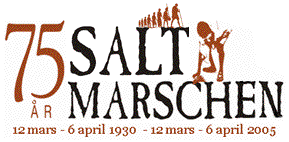India - Europe Dialogues on Democracy and Swaraj

Vasudhaiva Kutumbakam - A Coalition for Comprehensive Democracy (Swaraj)
Press release, embargo 12.10.2006, 15.00
GROWTH OF THE INDIAN ECONOMY HAS DRAWBACKS AS WELL
While European corporations are gaining financially from growing trade relations with India, desperate Indian farmers are committing suicides, displacement of people from their livelihoods both in urban and rural areas is increasing and hunger is becoming exacerbated. Displacements and desperation caused by one-way globalisation is giving rise to identity extremism among Hindus, Muslims, Christians and other communities in the entire South Asian Region. Similarly, political extremism of Maoists/Naxalites has been significant in Nepal and India. These themes would have been central concerns of the EU-India summit of 13 October in Helsinki had the EU and India been committed to human rights and democracy.
Research shows that India’s intense economic growth mainly benefits the educated urban populations (up to 7 %). If agricultural and trade policies continue in their present form, as many as 40 percent of Indian farmers (around 260 million persons) will have to consider giving up farming. For the Indian small holder or agricultural labourer it is unfeasible to compete with farmers of the EU and other industrialised countries whose production subsidies amount to billions of euros. During the past ten years the WTO agreement on agriculture has coerced Indian to remove quantitative restrictions while the EU has not reduced its subsidies a penny. This has lead to increased food imports to India from the EU making the life of Indian farmers increasingly difficult.
Since the free market system was introduced in the beginning of the 1990’s a wave of suicides shook the farmer population. In recent years the annual suicide toll has been 10,000 and yesterday in Vidarban region alone seven lives were lost.
Another response to the pauperisation of rural populations is a growing armed resistance directed towards the regime and corporate representatives. Armed groups (Naxalites), with an estimated strength of around 30,000 persons, operate in a third of India’s 600 districts.
Vijay Pratap, Indian researcher activist and founder of the Vasudhaiva Kutumbakam initiative offers a Gandhian alternative to solve these problems: “India and the EU should become clearly committed to alter their policies and institutions so as to be in concordance with Gandhi’s principle of “the last person first”. The best way to achieve the goal of a better society is by serving the last person (daridranarayan) instead of chasing the illusive American consumer paradise”, Pratap proposes.
Although research carried out by governmental organisations indicates that poverty and malnutrition has decreased in India, many independent quarters claim the research has not been properly conducted and that the results are faulty. According to research carried out by Jaya Mehta and Utsa Patnaik the number of impoverished and malnourished individuals has grown with as many as 300 million during the era of neo-liberalism in the 1990’s. “If we want to increase the welfare of the Indian population the starting point for these activities should be based on the reality and wishes of these hungry people rather than the growth fantasies of the global economy”, says Toni Haapanen of the organisation Friends of the Earth, Finland.
Vasudhaiva
Kutumbakam -aloite
Vasudhaiva Kutumbakam -initiative in English
(rtf)
Vasudhaiva Kutumbakam -initiativ på svenska (rtf)
Yhdistyksen säännöt
Toimintasuunnitelma 2003